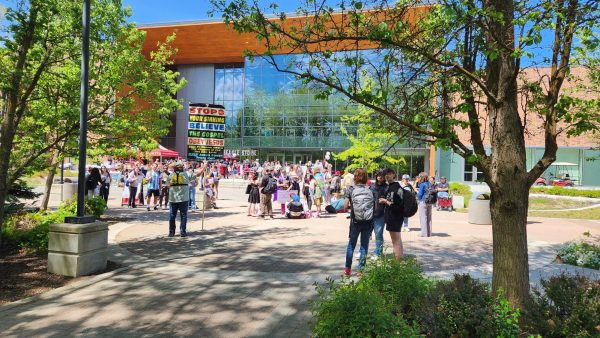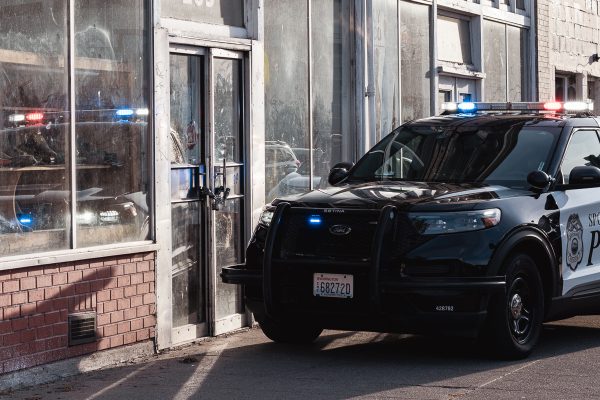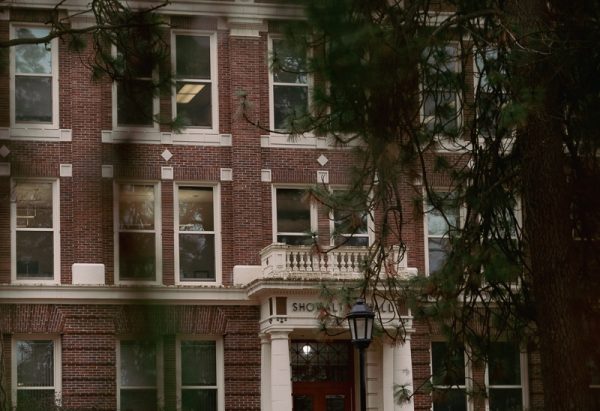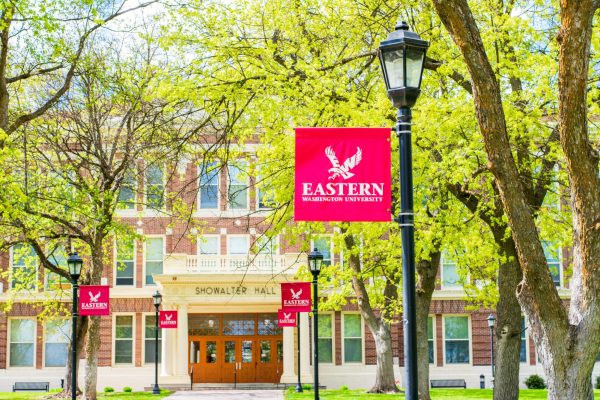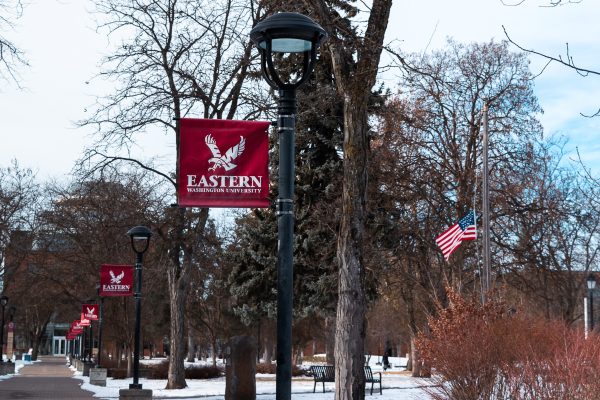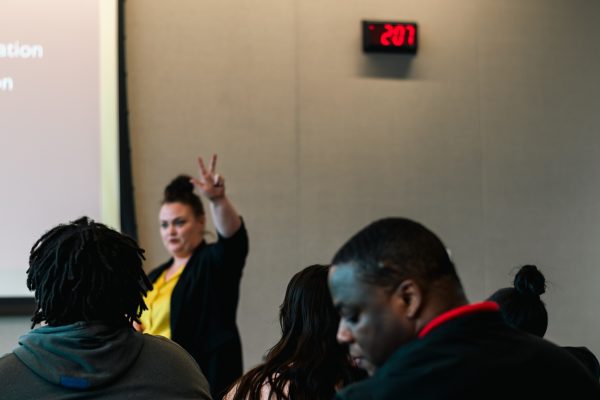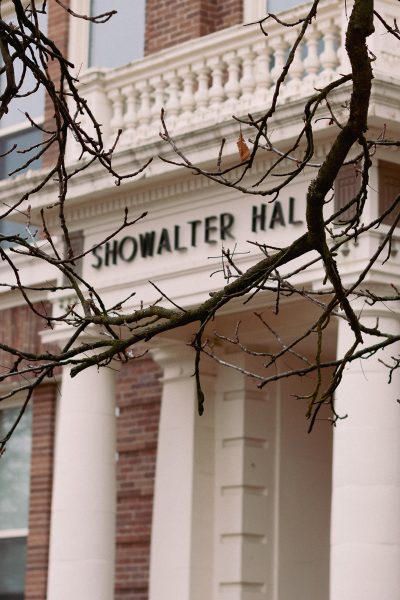“Faithiest” author speaks about diversity in community
May 10, 2013

diversity and acceptance.
On April 29, Chris Stedman, an assistant humanist chaplain from Harvard University, author, writer and queer, discussed interfaith, atheism, agnosticism, acceptance and how diversity is important to every community.
In his book, “Faithiest,” which rhymes with atheist, Stedman explains that he has a desire to challenge and change. He read an excerpt from his book that said, “I believe that meaning and purpose are not gifted from a divine source, but are instead collectively assembled by humans learning to live alongside and love others, all others, is perhaps our greatest task.”
The Compassionate Interfaith Society hosted Chris Stedman’s events. “I think it’s amazing that [Compassionate Interfaith Society] is blooming and growing and that it will continue to grow amazing scholars. I was especially interested in [Stedman] because the atheist voice is a really important voice,” said philosophy lecturer and original faculty adviser of Compassionate Interfaith Society Kathryn Julyan.
Being a humanist, Stedman can relate to the struggle of interfaith people, minorities and the gay community, according to management information systems major Nawaf Alshammari. “It’s interesting and inspiring.”
People of all different backgrounds asked Stedman questions about what the challenges are of building a better community and safer space.
Listening to how people see the world differently and conversing on topics of atheism and faith is a very important topic, according to Presbyterian Reverend Paul Rodkey of United Ministries.
“I don’t care what faith tradition you have, there’s not one monolithic way of thinking. We got to have conversations where we’re confident enough and comfortable enough to listen to other perspectives, so we can look on our own and maybe deepen it and make it more powerful,” said Rodkey.
In the fight for gay marriage and lesbian, gay, bisexual and transgender rights, there has been a need for religious allies to help facilitate conversations in their own communities, according to Stedman.
Later in the afternoon, Stedman read excerpts from his book “Faithiest.” “I wrote this book because I want to live in a world where love is more commonplace and the way I am trying to do that is by working to advance the conversation on how atheists and the religious relate to one another. Sharing my experience is the best way I know how to do that,” as quoted from “Faithiest.”
Stedman’s third event was an interactive workshop, which started with introductions from each participant listing their name, religion and major or occupation.
At the workshop everyone sat in a big circle to discuss key words surrounding the topics of religion, atheism and agnosticism. Stedman stressed that it was a safe space meant for open discussion.
The word atheist brought about key words such as hostile, isolated, angry, intellectual, challenging, overwhelming, secular, logic and free. While the word agnostic brought about keywords and phrases such as indecisive, spiritual, neutral, “got to see it to believe it,” objective, self-reliant, open and quiet.
“I took a class here where it was very biased on religion. It made me curious what others thought and what it would be like if everyone understood each other and worked together instead of always to try to prove each other wrong,” said sophomore Shelbey Johnson.
Stedman explained his newfound relationship as an atheist with his former pastor. After rekindling their friendship, they forged an interfaith coalition to fight a common issue, hunger, in Boston.
“More than a billion people on the planet don’t have enough food, including one in six Americans. It will take more than just atheists and more than just Christians to solve this problem,” said Stedman.
Combating hunger in Boston with Stedman’s former pastor made him wonder what the world would be like if it was more willing to forge unconventional alliances.
“What would happen if atheists and Christians and people of all faiths and beliefs started seeing one another as necessary partners in making the world a better place?” Stedman opened the door to questions about how we live our lives and how we live with one another.
Stedman hopes that in coming to Eastern, his talks would spark more conversations on campus.



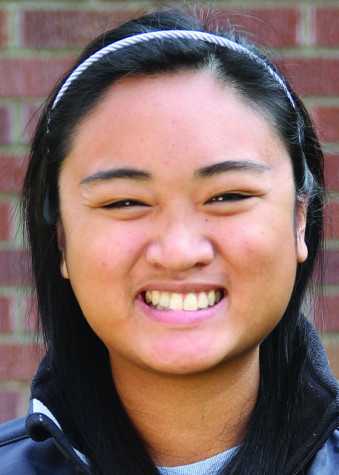


![Simmons said the biggest reasons for her success this year were “God, hard work, and trusting [her] coach and what she has planned.”](https://theeasterner.org/wp-content/uploads/2024/05/image1-1-1200x800.jpg)

